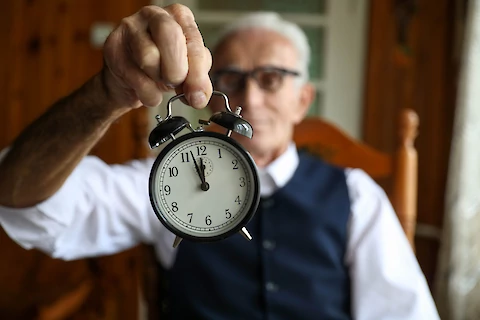
Daylight Saving Time, a biannual clock shift ushering in longer days or cozy nights, can pose a significant challenge to seniors. As the clocks spring forward or fall back, it can disrupt routine activities such as sleep patterns, meal times, and medication schedules. This can leave many older adults feeling out of sync. Fortunately, there are several things you can do to streamline the transition to Daylight Savings Time.
The Impact of Daylight Saving Time on Seniors
Daylight Saving Time may seem like a simple one-hour adjustment. However, for many older adults, it's much more than that. It can throw our internal body clocks or circadian rhythms off balance, leading to sleep quality changes and duration. Disrupted sleep can lead to daytime fatigue, mood changes, and concentration difficulties. This can be particularly challenging for seniors, who often have set meal times and medication schedules integral to their health management. Understanding the importance of adjusting to the new schedule and making the transition as smooth as possible is essential.
Tips for Gradually Altering Routines
One of the most effective strategies for easing into the time change is to shift routines gradually. Starting a few days before the change, try adjusting bedtime and wake-up time by 15 minutes each day. This gradual change can help mitigate the shock to the system that a sudden one-hour adjustment can cause.
For meals, slight changes to dining times in the days leading up to the time change can help seniors adjust. For medications taken at specific times, a gradual adjustment is beneficial. Always discuss these changes with healthcare providers or caregivers to ensure the adjustments are appropriate and won't negatively impact health.
The Importance of a Well-lit Home
As we "fall back", the early evening can become much darker faster. A well-lit home is crucial for seniors, especially those with vision issues. This helps prevent accidents and maintain a secure environment. Consider improving the lighting in your home by adding more lamps or light fixtures. Pay extra attention to areas where you perform daily activities. Light controls like timers can help. They will automatically turn your lights on as it gets dark, even if you're not home or simply forget to do so.
Ensuring All Clocks are Reset Correctly
In this age of smartphones and computers, many devices automatically adjust to the time change. However, it's crucial to remember that not all clocks will reset themselves. Wall clocks, wristwatches, and alarm clocks may need manual adjustment. Check every clock in your home to ensure the time is correct. Also, you can ask a relative, friend, or caregiver to double-check.
Get Support From Senior Helpers Chattanooga
Adapting to Daylight Saving Time doesn't need to be a struggle. Through implementing small, gradual changes to routines, seniors can transition into the new schedule smoothly. If you or a loved one in the Red Bank, Signal Mountain, or Ooltewah areas needs assistance with any aspect of daily living, don't hesitate to contact us at Senior Helpers Chattanooga. Our experienced and dedicated team is here to provide the support and resources necessary no matter the season.